Welcome to Beijing! I’m Chen.
The world has entered its mobile era, in which you could basically handle everything in your life with your phones, shopping, booking and searching for useful information. And China is no exception. But China has a very unique mobile landscape. We got all kinds of local app developers providing all sorts of services, which may be different from what you’ve been using back home. So today I going to share you some essential apps for visitors and travelers.
Payment & Messaging Apps
The first is actually a pair of apps, WeChat & Alipay. They’re essential to the cashless payment in China. Basically, every shop, restaurant, self-owned business accepts these two. Having these 2 apps saves you from the trouble of carrying a lot of cash with you.
Alipay is also used for public transportation like subway and bus, while WeChat is the most widely used chat app in China (counterpart to WhatsApp, Messenger, iMessage).
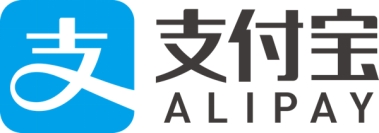
Passport authentication and bank card verification are required for using the payment function of these 2 apps. For those who want to check the details of setting up those 2 apps, please check my previous articles and content about Payment and Currency Exchange.
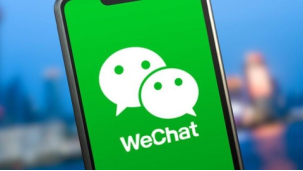
Translation App
Language and translation are really a huge thing when you travel to another country, especially given that Chinese is so different from other languages around the world. However, there is no need to worry too much. Nowadays translation apps like Google Translation are really capable. I also have some other translation apps to recommend: Baidu Translation, Microsoft Translator. Both are very capable and have stood the test of actual usage by many foreign travelers already.
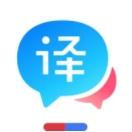
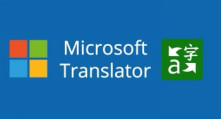
You might be wondering how I could use Google service while in China? Rest assured, it’s not a problem and I will share more details in the network part of this article later.
Transportation (Navigation, Ride-hailing) Apps
Next, I’d like to recommend Didi for car hailing or ride-hailing. It is the largest ride-hailing app in China covering all the main cities a foreign visitor might go to. Just consider it as China’s Uber. The cost of Didi is also affordable, it you compared it to other international metropolitan cities like New York, London, Tokyo, Singapore... In tier-1 cities like Beijing, Shanghai and Guangzhou, Didi generally charges for 2 CNY (0.27 USD) per kilometer (about 0.6 miles)plus a time-based fee of 0.5 CNY per minute (7 cents). So generally an 80 km ride (which is one of the longest rides you could probably make) would cost around 200 CNY (27USD) to 250 CNY (34USD). A 5 km ride (such from the Forbidden City to the Temple of Heaven) would cost around 20 to 30 CNY (around 3 USD).

And talking about transportation, you also need good navigation and mapping/ location service, at which Google Map may not be good enough, in China. For iPhone users, congratulations, your Apple Map works perfectly in China. And if you are an android user, you may need to download Amap, which provides more information and location of interests than most other maps. It not only give recommendations on routes to the destinations, but also gives you an estimated time spent on the route. And you could also change your departing time to a specific timing in the future to get a more accurate time estimation.

For those who want to figure out inter-city transportation, bullet trains are always a good choice with the speed the on-time performance. In China, China Railway 12306 is the only official website for train tickets. You could either go to https://www.12306.cn (.cn not .com) or download the official app from Google Play and iOS App Store. Also you could get your tickets via 3rd party service providers (with an extra service fee) like trip.com or ctrip.com (these two are actually the same company. Trip.com is focusing more on the international business and international travelers while ctrip.com is more for Chinese travelers).

For more details about the transportation, pls check it out at my previous articles and content about Transportation.
Accommodations Apps
Of course, you could find hotels on Booking.com and Agoda, but I would say these platforms often don’t offer best prices when it comes to hotels in China. So, my recommendation is Trip.com (or Ctrip.com, as mentioned above, these two are actually the same company) and Meituan. Personally, I would prefer Trip.com, because you could use it both on PC via a web browser or on your phone after you download the app from app store, while Meituan only offers a mobile phone app option (because, again, personally, I prefer to do a travel plan on laptop or desktop rather than phones). Besides, when you’ve decided which hotel to stay, remember to compare the prices among all the booking platforms to save money. Also, if you’re a loyal customer to some international hotel companies, you could also search for best prices on their official websites or apps like InterContinental, Hilton, Shangri La, Marriott, Hyatt and so on.

Previously I’ve shared more information about the accommodation and some of it is about my opinions on homestay options in China. Also, I provide some tips on areas and zones of Beijing in case you may need some inputs to decide where you’re going to stay. Please check it out at my previous travel tips on Areas and Accommodations of Beijing.
Foods and Restaurants Apps
Dianping is a widely used app in China as the counterpart to Yelp and Google My Business. In this app, you could see customers’ reviews and ratings on each business (mainly restaurant). The average cost of the restaurant/business would also be shown in this app, which could be served as a reference.
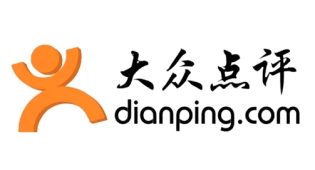
Similarly, Meituan is also a large network of Chinese food merchants and provides the similar features to Dianping, including customer reviews, table reservations (only available for some restaurants). Additionally, Meituan offers food delivery service (similar to UberEats, GrabFood, Deliveroo, DoorDash, FoodPanda and so on). So, you could order foods delivered to you conveniently.
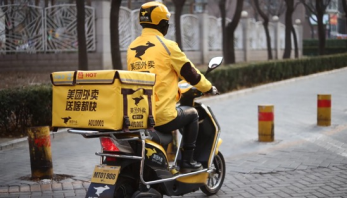
Online Shopping App
Among all the e-commerce apps and websites in China, I recommend JD.com to travelers. JD.com is considered as the counterpart to Amazon. The “craziest” thing about JD is its outstanding delivery service. In tier-1 cities like Beijing, Shanghai and Guangzhou, things you ordered just in the morning could be delivered to you right in the same day’s afternoon. And for most cities in China, JD could deliver goods to you just the next day. And most goods would show an estimated arrival time before you make the order, which is very accurate. And JD has a great post-sale service, giving most goods unconditional refund policy within 7 days of receipt.

Network Connection
If your phone operator (such as ATT, T-mobile, Verizon, Sprint) has an international roaming option and you’ve activated that option, you don’t need to worry about the “access to western websites and app services”. Your phone operator (or carrier) would act as a VPN, which gives you access to foreign websites and services like WhatsApp, YouTube, Facebook, Instagram etc. All you need to worry about is your data plan during your stay in China. To my knowledge, most carriers would provide travel plans or travel packages to those going to have international trips. So, just check with your phone carrier in advance and you’ll be fine.
You could also get a local SIM card at the airport at the tour info counter or China Mobile/Unicom counter, or any carrier shop in the city. You could get a SIM card with a Chinese phone number. Please be noted that not all plans offer international connection as your home carrier does. So please check it with the clerks and staff at the counter to avoid trouble.
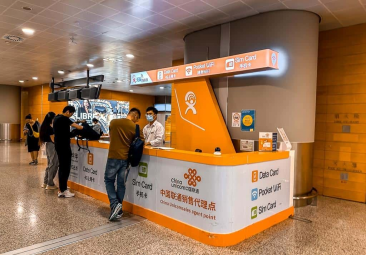
Usually, I don’t recommend you to buy any VPN service in China, unless you’re very confident of the service that VPN provider offers. Some VPN service providers are infamous for their unstable connections. I would say home carrier with an international roaming option works the easiest and most convenient way for most international travelers as long as you figure out an acceptable deal with your phone carrier. But if you need a Chinese phone number, you may need to get a local sim card after you arrive.
Last but not least, I’ve made a shortlist so you could find the apps you need more easily:
Payment: WeChat, Alipay
Messaging: WeChat
Translation: Google Translation, Baidu Translation, Microsoft Translation
Transportation: Didi, 12306, Trip.com, Apple Map, Amap
Accommodation: Trip.com, Meituan
Foods: Dianping, Meituan
Online Shopping: JD.com
I hope you find that information helpful. Wish you a very happy journey in China! See you.